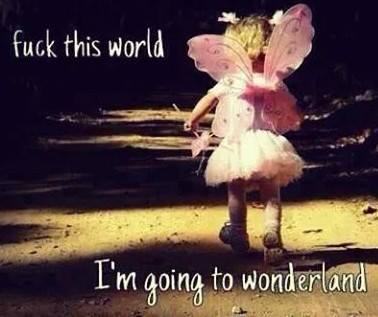
Nee kyk, vandag het ek effe genoeg van grootmenswees gehad.
Ek wil bedank uit my lewe as intreebejaarde en wit Suid-Afrikaner.
Sat is ek om tot by my nie-bestaande mangels ge-Fica te word. Ek het al vir jare nie my eie bankrekening nie. Nou moet ek ‘n spaarrekening oopmaak omdat ‘n belegging wat uitkeer, slegs in ‘n rekening in my naam gedeponeer kan word.
Ag flip, omdat daar soveel korrupsie en misdaad is, moet ons almal soos kriminele behandel word, maar die korrupte en kriminele jol steeds lekker rond.
Ek is gatvol om ten duurste vir ‘n mediese fonds te betaal, en die dag dat jy die hospitaal en operasieteater benodig, moet jy bloeiiend eers deposito’s en magtigings kry alvorens iemand jou help.
Moerig is ek dat almal goeie diens en afslag by jou kan eis, maar jy’t het nie by die bank, die dokter, die supermark reg op enigiets, behalwe om te betaal nie. Geen onderhandeling.
Ek is moeg om gedurig ontuis in my geboorteland te voel. Ek is moeg om te hoor my velkleur kry die skuld vir die regerende party se onbeholpenheid om vir armes te sorg, kinders op te voed, bejaardes en gestremdes te versorg.
Die oerwoudwette op ons paaie – sperstrepe wat nou beteken jy mag maar verbygaan, stopstrate wat toegeetekens is, taxi’s wat kan stop en afdraai net soos hulle wil. Die gekhied maak my mal en beangs. Daar is slagting op ons paaie.
Ek is moeg bekgehou en wil saam met die skrywer van die onderstaande, dié woorde aan die Prez, die ANC, Malema en sy EFF, BLF en alle rassiste in ons land voorlê:
“Please, I want to be a South African
I am white. Yes, my foremothers and –fathers were from Europe. I was born in 1973 in Klerksdorp, South Africa. South. Africa.
It was only during adolescence that I started to discover what it means to be a white South African. And at 44, I am still struggling. The process was much more complicated than I could ever imagine.
And in recent weeks (in fact months and years) I have heard more and more white people say that they are struggling. Mostly struggling to feel that they have a voice. Or a home.
South Africa’s issues with regard to identity, migration and colonisation are of course not unique. Think USA, Canada, Australia, New Zealand. And then some more.
Because people have always moved. They have trekked. There have been wars and scarcity and religious intolerance and famine that caused these re-shapings of demographics and identities. And it has brought suffering and the very hard work of figuring out who we are.
We are neither unique nor alone.
So when do you qualify to be ‘from somewhere’? After a few years, a few generations, a number of centuries, or millennia? And when does that help you to discover this aspect of your identity?
Now I envy the Canadians. From what I can see, they have a great country. Despite (or because of?) their diversity, there seems to be a very deep sense of patriotism and humble pride (if there is such a thing). Of their country. Their identity. As Canadians.
This identity thing is undergirding so many of the burning issues of our time. There is a very clear distinction between (as Marine le Pen called them) ‘globalists’ and ‘patriots’. This thinking is obviously polarising. It’s either or thinking.
What Canada (and others) seems to be getting right is ‘both and’ thinking. I am of Indian origin and Canadian. I am patriotic towards my country, my origin, my home, and I do realise how interdependent we’ve become, how intimately connected we all are, how much we need each other as fragile citizens of the blue planet.
I am a globalised patriot.
23 years ago, when dawn broke over a budding new South Africa, the great Nelson Mandela’s rhetoric was one of inclusivity, a shared humanity, the charming vision of a home for all South Africans.
Here’s my realisation: I am struggling with this. As a white South African, it’s easier to call myself a globalist than a patriot. At least at the moment. Because I feel uncertain (again).
I know that Nelson Mandela won’t run down to rescue me or anyone else with high ideals of equality and dignity and jobs for all.
I realise that I cannot open a Constitutional Court case every time I feel threatened.
I doubt whether any argument (on blackness, whiteness, colonisation, decolonisation or radical economic transformation) will force anyone to make anyone else feel at home in this stunning country.
I will continue to work at being more and more and more patriotic. Whether despite or because of certain political leaders.
I want to be a South African.
Not willing to die for my country, but willing to live and strive for the freedom to be. Dare I add: not only for myself?
But for South Africans. All of us.”
Rudi Swanepoel
Johannesburg
May 2017
Tot later. Ek sal seker more uit my ‘fokkit-ek-gaan-Wonderland-toe’ bui wees, dan probeer ons weer.

Love en ek moet dit net deel want dit kon net sowel ek gewees het wat hier geskryf het. Raas maar as ek nie mag gedeel het nie x
LikeLiked by 1 person
Dankbaar ek is nie alleen in my lus vir Wonderland nie! Gelukkig gaan dié gevoel weer verby, en die son kom op en ons probeer weer! Sal nooit raas nie!
LikeLiked by 2 people
Dis presies hoe ek baie keer voel maar te lig in die broek om iets te sê. Baie dankie
LikeLiked by 1 person
Wonderlik raak gese. Jy deel ons harte en ons lus vir Wonderland. Wens vir daai towerstaffie
LikeLiked by 2 people